Guaranteed to teach you things you never knew.
Storyworth Alternatives for Capturing and Preserving Family Memories
Explore transformative alternatives to Storyworth that enable families to immortalize their cherished histories, fostering deep connections and vibrant storytelling through the voices of loved ones.
Are you looking for a better way to capture your family’s history? While Storyworth remains a beloved choice for many, it’s no longer the only way to preserve family stories. Families today want to record not just the words but the voices, emotions, and laughter that bring those stories to life.
This guide explores the best Storyworth alternatives, from voice-powered storytelling tools like Remento to professional interview and multimedia memory services,so you can find the option that best fits your family.
About Storyworth®: Pros and Cons
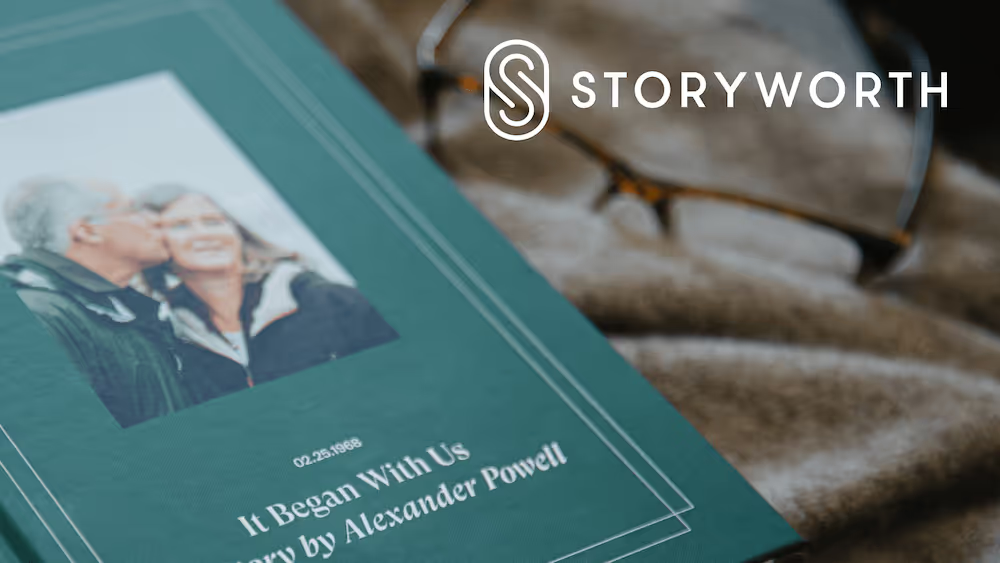
Storyworth is one of the earliest and most well-known storytelling services, launched over a decade ago to help families write their life stories one prompt at a time. When you sign up, your storyteller receives one question each week by email—typically 52 prompts over the course of a year. They can type their response directly in the email or write in the online portal, and at the end of the year, Storyworth compiles all their answers into a printed hardcover book.
Storyworth also offers a speech-to-text option for those who prefer talking over typing. However, this feature isn’t a full audio experience. It simply converts speech into unedited text. The recording itself isn’t saved, meaning families can’t hear the storyteller’s actual voice or tone. Because the transcription is verbatim, any pauses, tangents, or restarts appear directly in the printed text.
The result is a heartfelt, text-based record of a storyteller’s memories - but one that relies on clear speech and written storytelling. It’s ideal for those who enjoy reflective writing or want their exact words printed, but families looking for richer emotional connection or preserved voices may find other tools more fitting.
Storyworth sends a weekly email prompt to a loved one, encouraging them to reflect, write, and share their stories. After a year, those written responses are compiled into a hardcover keepsake book—a thoughtful and sentimental way to preserve memories in written form.
The service appeals to families who like structure and simplicity. It’s predictable, organized, and culminates in a tangible book. But while the idea is lovely, the experience isn’t ideal for everyone.
In short, Storyworth delivers a meaningful result, but getting there can take patience, persistence, and a fair bit of writing.
Pros:
- Preferred by writers: Ideal for those who enjoy reflective writing or prefer full control over their words.
- Structured and reliable: Weekly prompts over 52 weeks provide a consistent storytelling cadence.
- Produces a polished book: Creates a hardcover, keepsake book with clean design and consistent formatting.
Cons:
- No voice preservation: Recordings of the storyteller are not accessible through the book.
- Verbatim transcription only: Dictated stories appear exactly as spoken, often without punctuation or cleanup, making them feel raw or fragmented - not ideal for less-structured speakers.
- Can’t record the stories behind photos: Photos can be added to existing stories, but they cannot be used to inspire the sharing of memories associated with the image itself.
- Smaller (and more expensive) books - Printing additional copies of Storyworth’s 6”x9” color-printed books costs $79 each.
- Minimal collaboration: Family can suggest prompts, add photos, and edit stories, but cannot add comments to ensure the storyteller feels heard and valued.
Read more: 15 things to know before you buy Storyworth
Alternatives to Storyworth
Each of the following platforms helps families capture, preserve, and celebrate personal stories, but with very different approaches.
Remento: The Voice-Powered Memory Book
.png)
Best for: Families who want to preserve voices, not just words.
Remento transforms storytelling into a simple, voice-first experience. Instead of writing, storytellers simply talk. The platform’s Speech-to-Story technology converts each spoken response into a beautifully written story and compiles them into a hardcover, full-color book. Each chapter includes a QR code that links directly to the original voice recording, allowing readers to both read and hear the memories being shared.
Every week, storytellers receive a new prompt via text or email. Some prompts come from Remento’s expert library, while others can be chosen or customized by family members, including the option to attach photos or personalized questions. The storyteller just clicks the link, speaks their response on any device, and Remento takes care of the rest. No apps, downloads, or passwords needed.
.png)
Remento turns recorded memories into beautifully written stories and brings your whole family into the process.
Each recording is automatically refined into a polished narrative, shared with invited family members, and collected in a printed keepsake that combines stories, photos, and the original recording. Families can add their own questions, react to new stories, and celebrate milestones as they unfold.
Whether you’re capturing a grandparent’s life lessons or a child’s earliest moments, Remento preserves every memory in both print and voice—so your family can hold on to not just the stories, but also the voices of the people behind them.
Learn more about Remento, the Storyworth alternative
The StoryCorps App
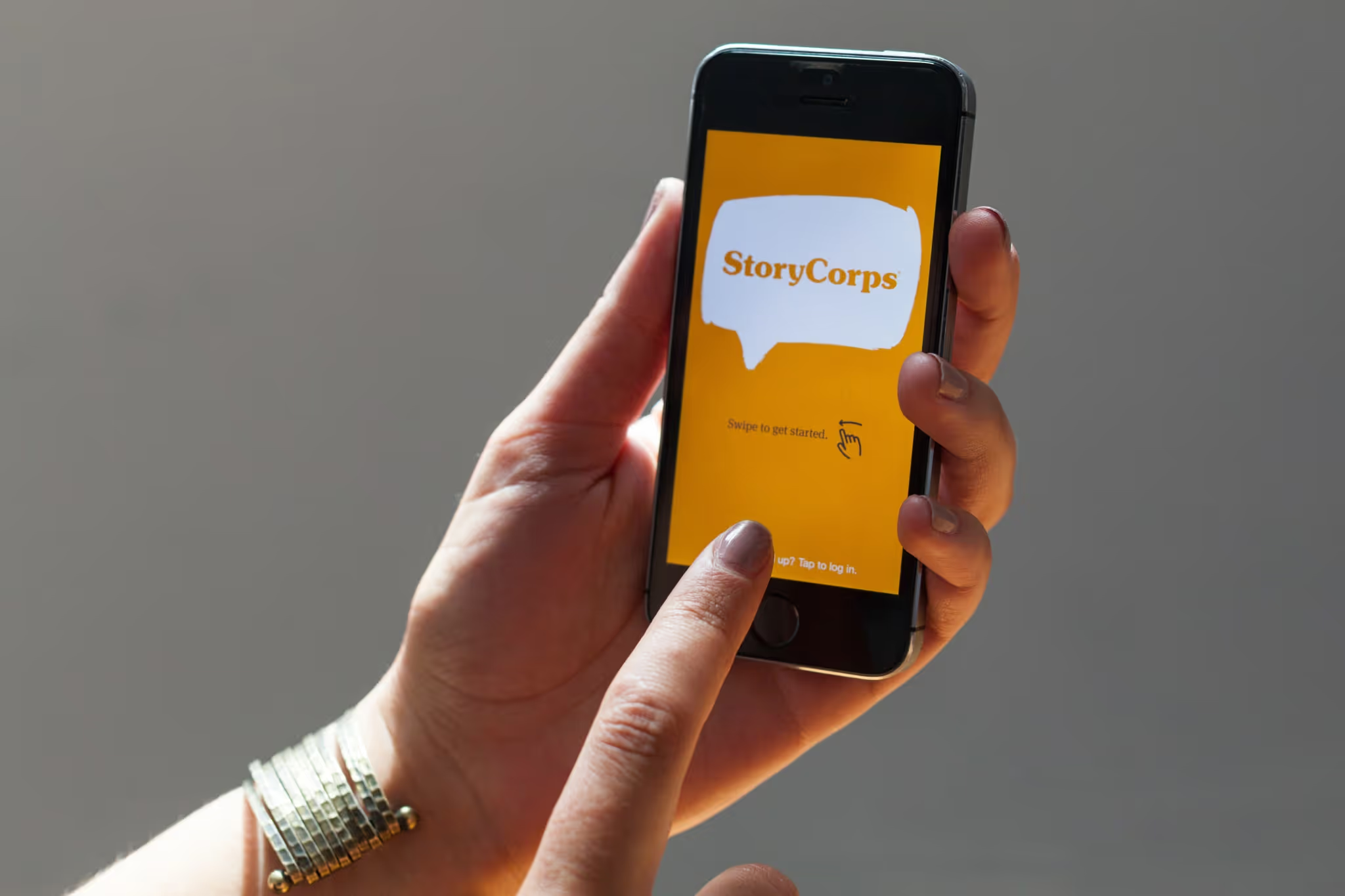
The StoryCorps App is a tool provided by StoryCorps for capturing and sharing meaningful conversations, differentiating itself from Storyworth with its emphasis on spontaneous, interactive dialogue. This app transforms the smartphone into a mobile recording studio, allowing users to conduct interviews anytime, anywhere. It offers a comprehensive guide to lead the discussion, including a list of great starting questions to facilitate a rich and personal conversation. The app also provides users with the ability to add a photo to their interview, tag its themes, and even geotag their location.
One of the most compelling features of the StoryCorps App is its connection to the Library of Congress. Unlike Storyworth, which focuses on creating a private family keepsake, StoryCorps allows users to upload their recorded interviews to the StoryCorps Archive at the American Folklife Center within the Library of Congress. This gives participants the unique opportunity to contribute their stories to the broader fabric of American history. With its focus on connection, dialogue, and shared legacy, the StoryCorps App offers a more interactive and public alternative to Storyworth’s private, question-based format.
No Story Lost
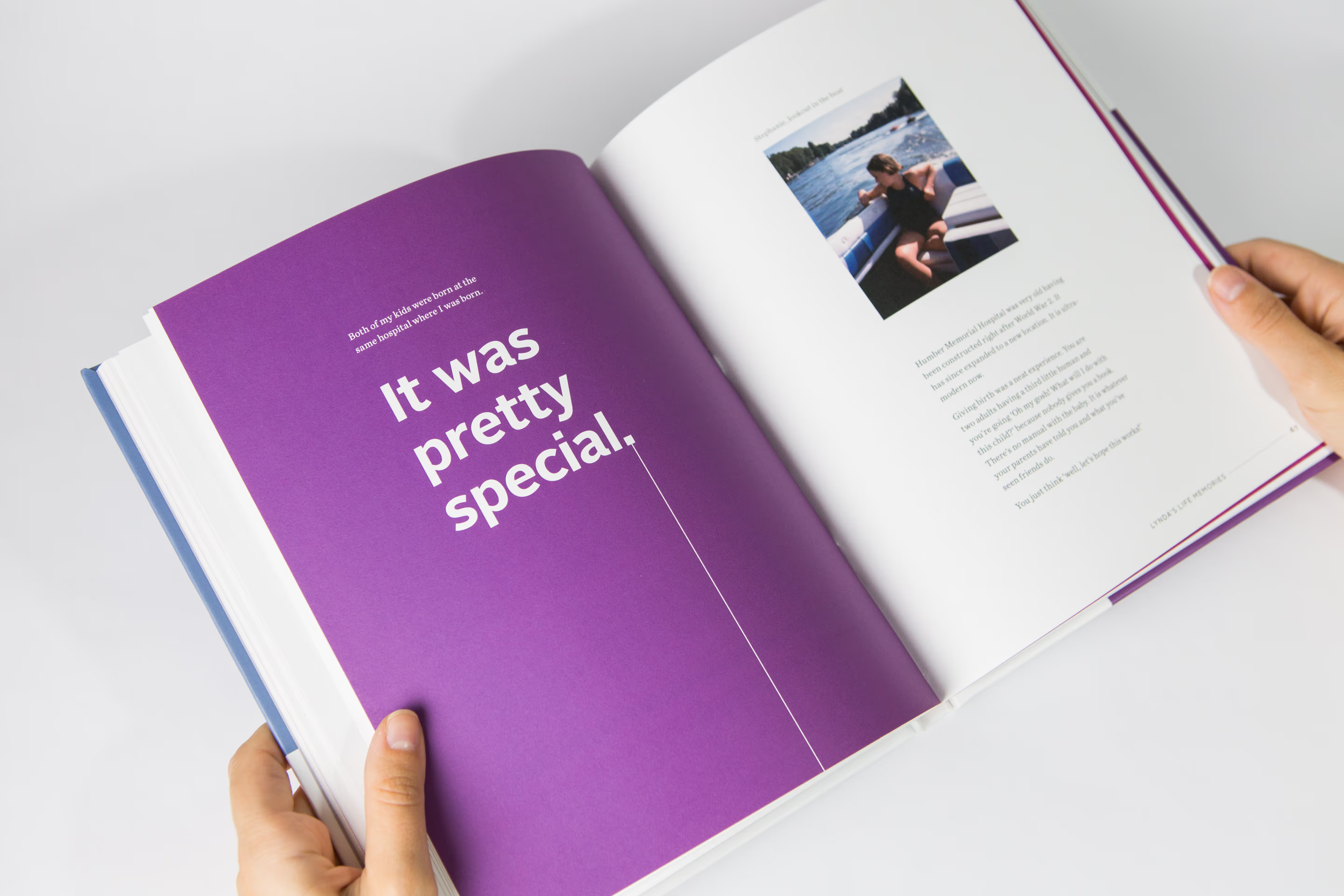
No Story Lost is a service designed to capture and preserve personal and family stories, providing a unique alternative to Storyworth's self-guided narrative collection. With No Story Lost, users receive personalized attention from a professional historian who conducts a series of one-on-one interview sessions, allowing for deeper, more meaningful storytelling. This tailored approach enables a richer exploration of personal history and experiences as the historian has the capacity to probe for more detail, convey context, and ask follow-up questions.
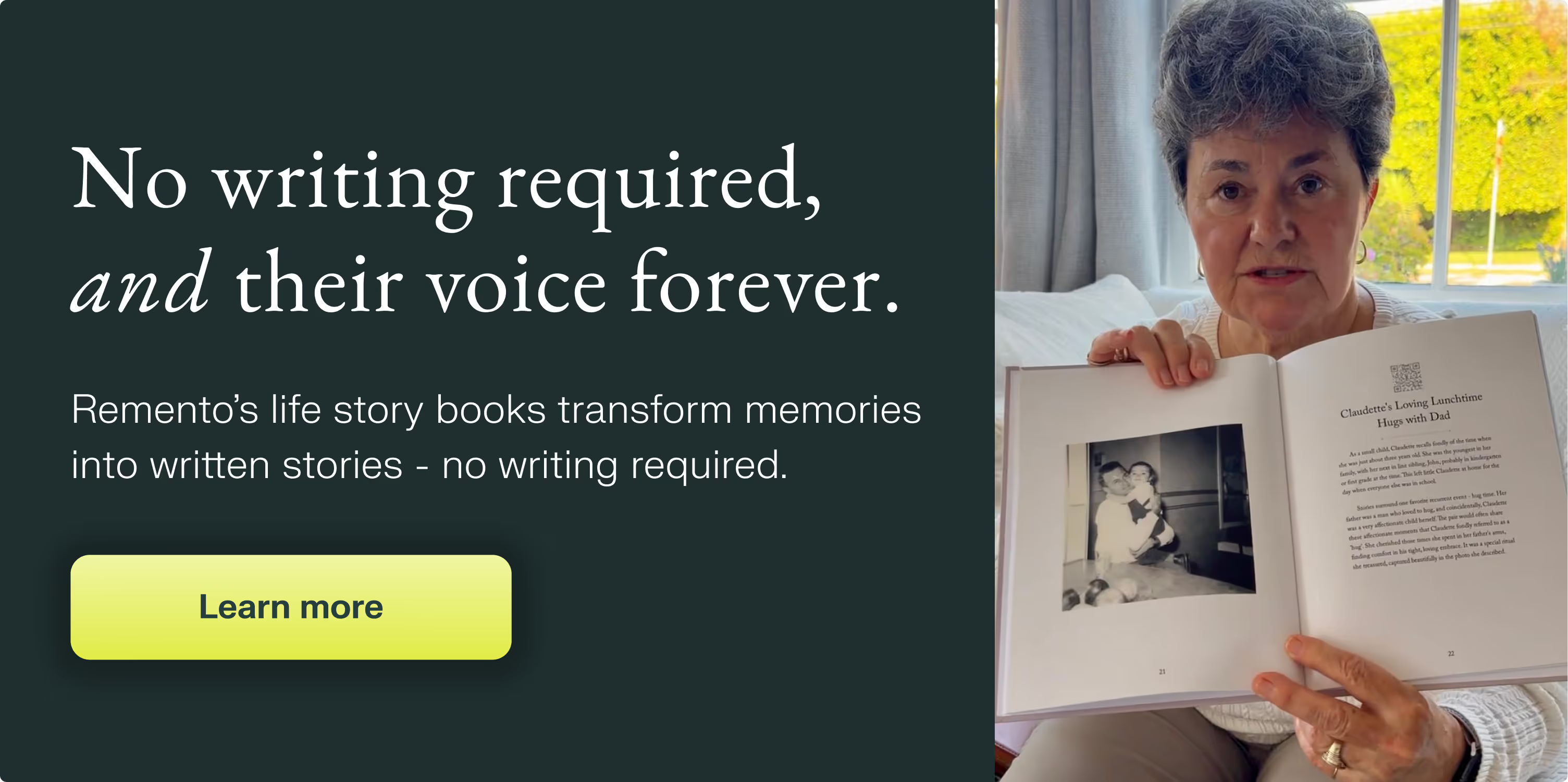
What sets No Story Lost apart from Storyworth's is not only its personalized interview process but also the meticulous and high-quality preservation of the collected stories. The oral history interviews are transcribed, and along with family photos and documents, are then integrated into a custom designed, archival-quality book. As a result, No Story Lost offers a product that is much more than a collection of stories or a photo album – it's an heirloom, a tangible connection to the past for the family's future generations to cherish.
Artifact

Artifact is a contemporary podcast company that offers unique, personalized podcasts capturing personal stories, special moments, or extensive interviews. Utilizing a cadre of professional interviewers and experienced editors, Artifact transforms individual experiences into captivating podcast episodes that can be shared and cherished for generations. This niche concept emphasizes the power of oral history and positions it in a modern, accessible context that aligns with today's digital media trends. Artifact's format allows for a multi-sensory experience - hearing the tones, expressions, and emotions in the voices, while Storyworth relies on the written word's power, enabling readers to visualize and imagine the narrative.
Legacybox
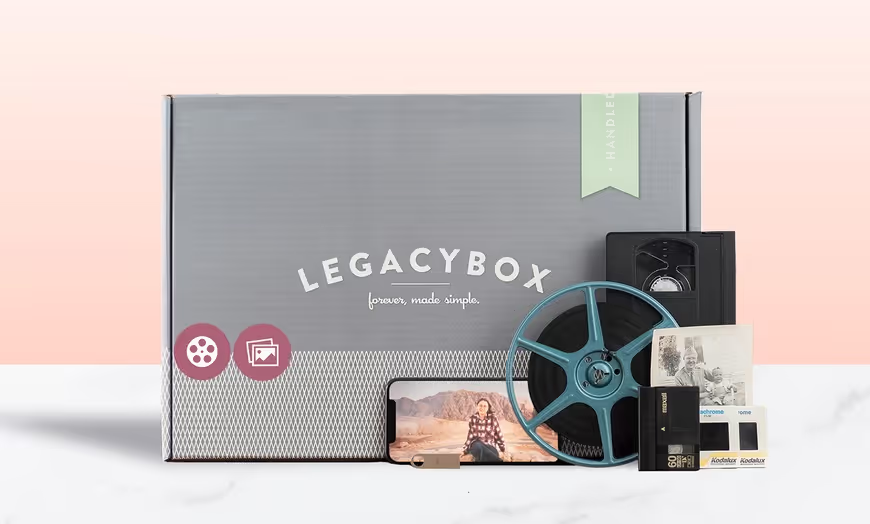
Legacybox is a service that digitizes physical media, such as photos, films, and tapes, converting them into a digital format that's easy to store and share. The process is simple: you send in your analog media in the box provided, and the company digitizes the contents using industry-leading equipment, turning them into DVDs, thumb drives, or digital downloads, based on your preference. The aim is to preserve cherished memories and safeguard them against damage or loss. Legacybox ensures the original copies are returned back to the owner along with the digitized versions, enabling people to relive and hand down their precious memories in a format that's relevant to today's digital era.
FamilySearch
.avif)
FamilySearch is a free genealogy service designed to help users trace their family lineage, making it quite different from Storyworth’s storytelling approach. This resource-rich platform provides access to an extensive collection of historical records, tools, and databases that help users explore their family history. It allows them to create family trees, search through archival documents, and view user-submitted genealogies. Unlike Storyworth, which centers on personal stories and memories, FamilySearch offers a broader perspective focused on genealogical research and building connections across generations.
lifeArk
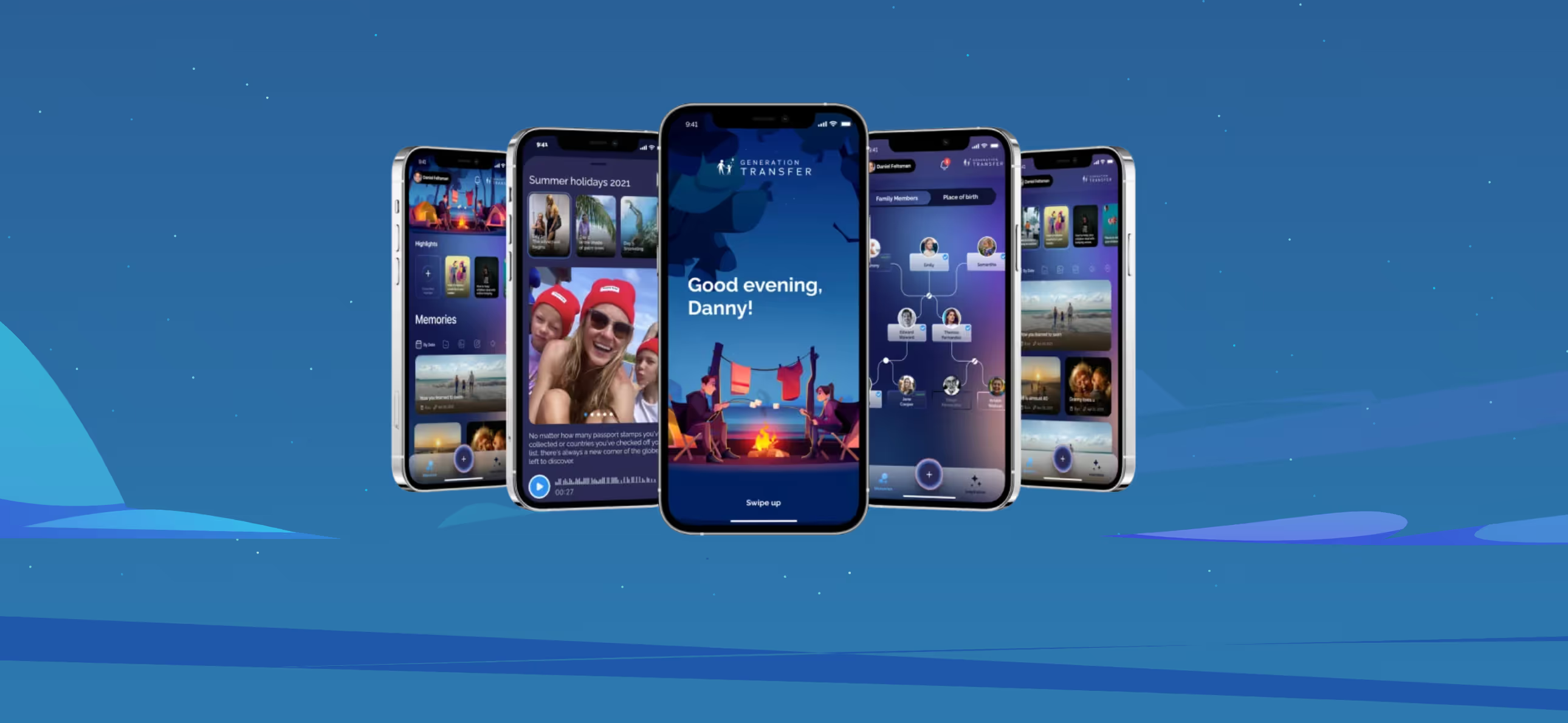
LifeArk is a digital family time capsule designed to store and preserve family stories, unlike Storyworth, which primarily collects written responses through weekly email prompts. LifeArk takes a multimedia approach, allowing users to save text, photos, audio, and video in an interactive online space designed to feel like a real home. Users can even designate certain items as digital heirlooms to be passed down through generations. It offers a more immersive experience than Storyworth, emphasizing the visual and sensory aspects of memory rather than a predominantly text-based format.
Vita Life Story
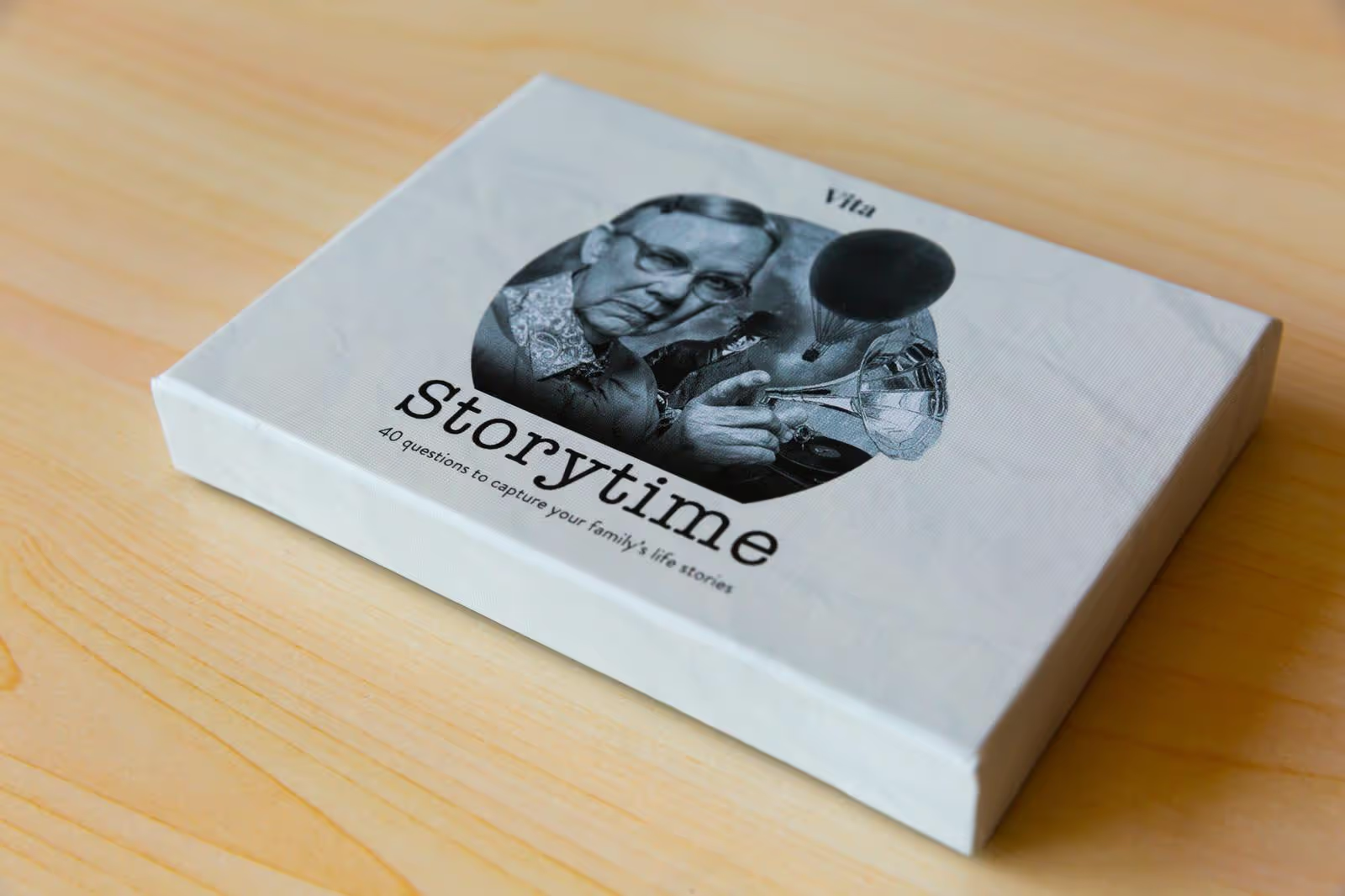
Vita Life Story is a digital platform that diverges from Storyworth by focusing largely on historical context. It allows users to document their lives or the lives of loved ones in relation to major historical events. Vita Life Story's powerful feature is its ability to synchronize personal narratives with relevant historical and cultural events, providing a greater context to personal experiences. While Storyworth relies on personal responses to questions for storytelling, Vita Life Story integrates personal milestones within a broader historical timeline, creating a rich tapestry of personal and societal history.
Storii
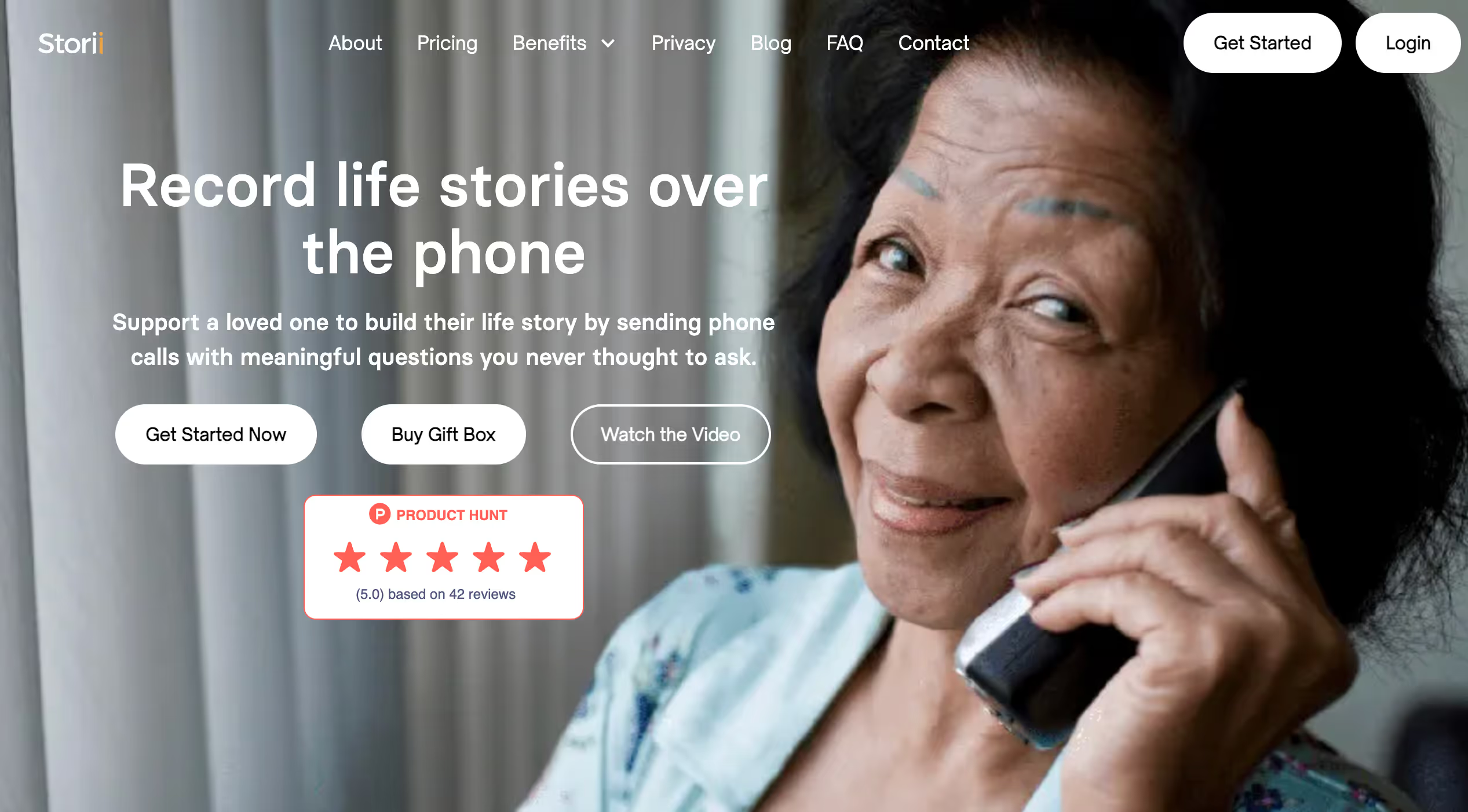
Storii is a platform primarily designed for care providers to record, preserve, and share life stories, making it quite different from Storyworth’s more family-centered focus. It is commonly used in senior care communities to support reminiscence therapy, stimulate cognitive function, and strengthen communication between residents and care staff. The platform also allows families to stay connected with their loved ones’ activities and contribute to their life stories. Unlike Storyworth, which delivers a printed book of collected stories after a year, Storii serves a more immediate purpose by fostering therapeutic engagement and providing a shared space for families and caregivers within a care environment.
Chatbooks
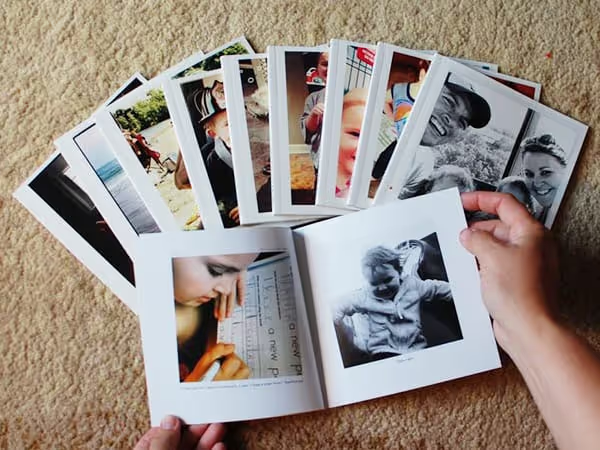
Chatbooks, unlike Storyworth, focuses on turning digital photos into physical photo books rather than compiling written stories. Users can automatically create books from their social media accounts or directly from their phone’s photo gallery. It’s ideal for those who want a tangible keepsake of everyday moments without the effort of manual selection or layout design. While Storyworth builds personal narratives over a year of weekly questions, Chatbooks provides a convenient way to capture and preserve visual memories for people who document their lives through photos.
PastBook

PastBook, unlike Storyworth, specializes in turning digital photos into printed albums with a focus on simplicity and convenience. It offers a quick and easy way to collect, customize, and print photos from multiple sources, including social media and cloud storage. PastBook’s one-click tool automatically arranges images into a high-quality photo book that can be personalized with minimal effort. While Storyworth is centered on capturing families’ written stories, PastBook focuses on preserving visual memories in a polished, tangible format.
Mixbook

Mixbook is an online platform for creating custom photo books, calendars, and cards, setting it apart from Storyworth’s focus on text-based storytelling. It offers a wide range of professionally designed templates while also allowing complete creative control through an intuitive editing interface. Users can upload photos directly from their devices or import them from social media platforms. Mixbook emphasizes design flexibility and aesthetic control rather than storytelling, giving users the freedom to create unique, personalized keepsakes.
Artkive
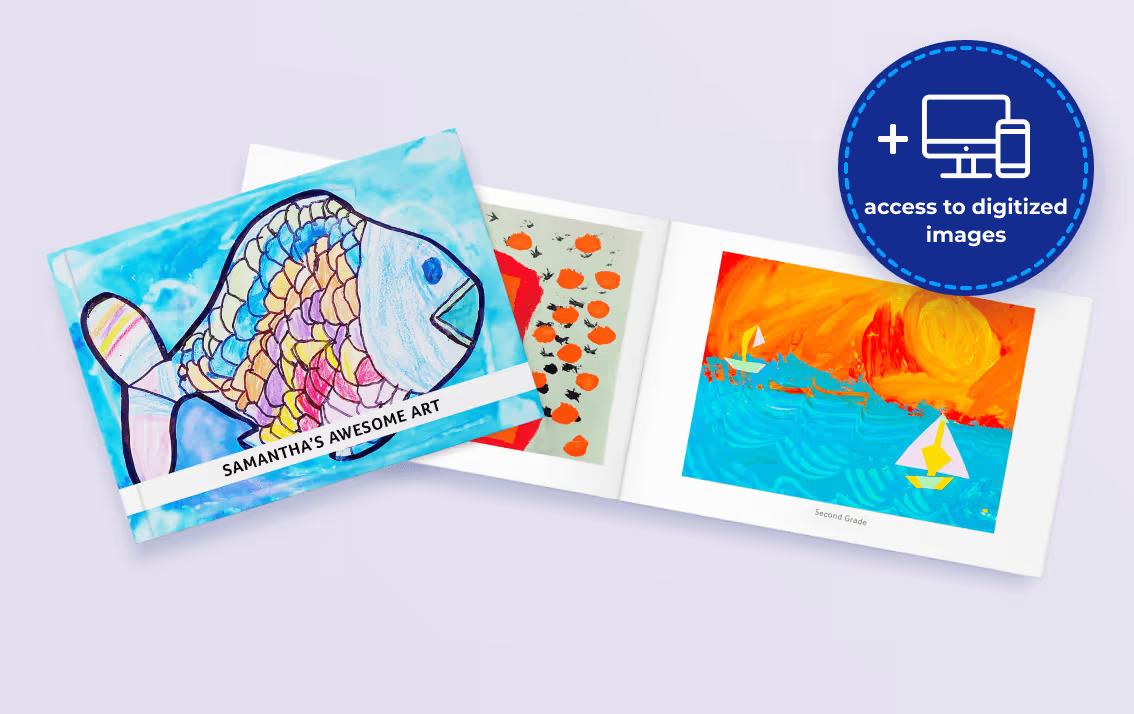
Artkive differs from Storyworth by focusing on preserving children's artwork rather than compiling written stories. It offers a simple solution for parents burdened with countless creations their children bring home, but are unsure how to appropriately store or display. With Artkive, parents can take photos, categorize, and store these pieces of art digitally. The platform also offers a service where they professionally photograph, compile, and print these artworks in a custom book design. Unlike Storyworth emphasis on the collection of oral histories, Artkive's aim is to ensure children's creativity is documented and cherished.
HistoryLines
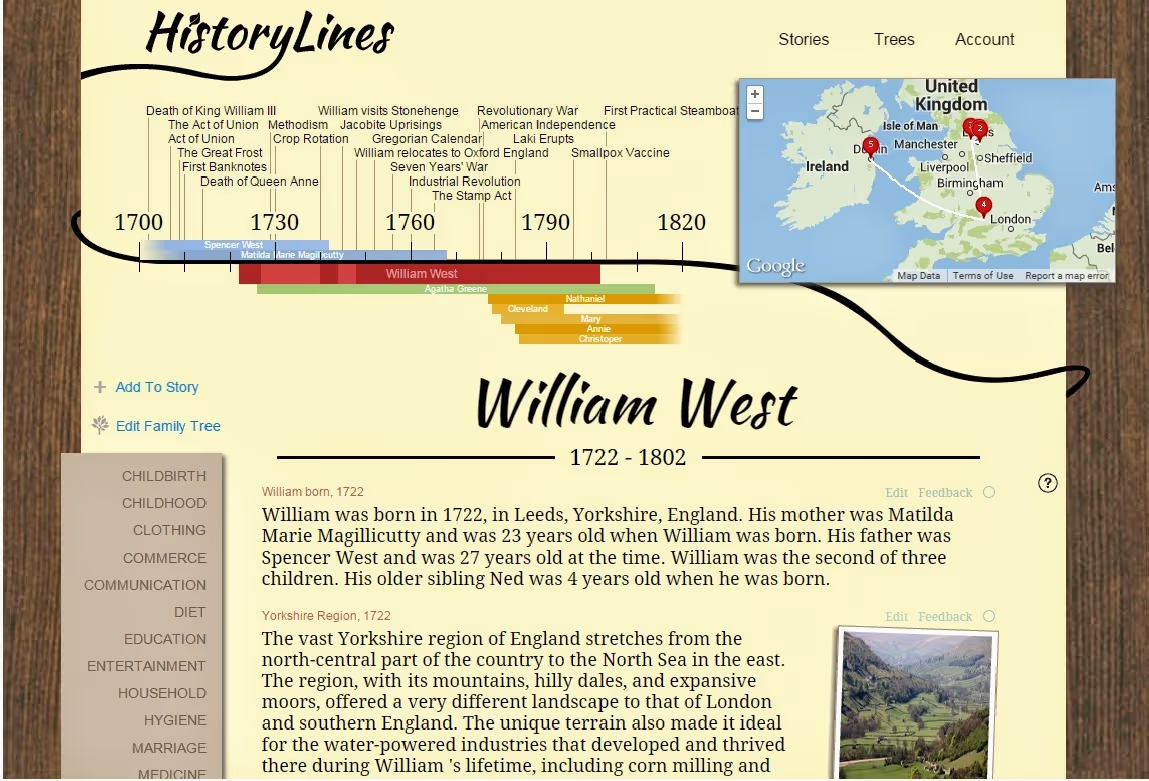
HistoryLines differentiates from Storyworth through its focus on contextualizing individuals' family history within a wider historical framework. It creates an interactive timeline for any ancestor that users are researching, populating their life story with historical events, typical living conditions, and cultural trends of their time. This historical backdrop provides context and adds depth to the family history, illuminating the circumstances that ancestors lived in. Unlike Storyworth, which collects personal stories through weekly prompts, HistoryLines provides a macro perspective, helping users appreciate the intersection of family history and world history.
Ready to capture stories without writing a word?
Remento's Speech-To-Story™ technology turns recordings of memories into a hardcover, color-printed keepsake book of stories. Read the book, or scan the QR codes within it to hear the original recording.
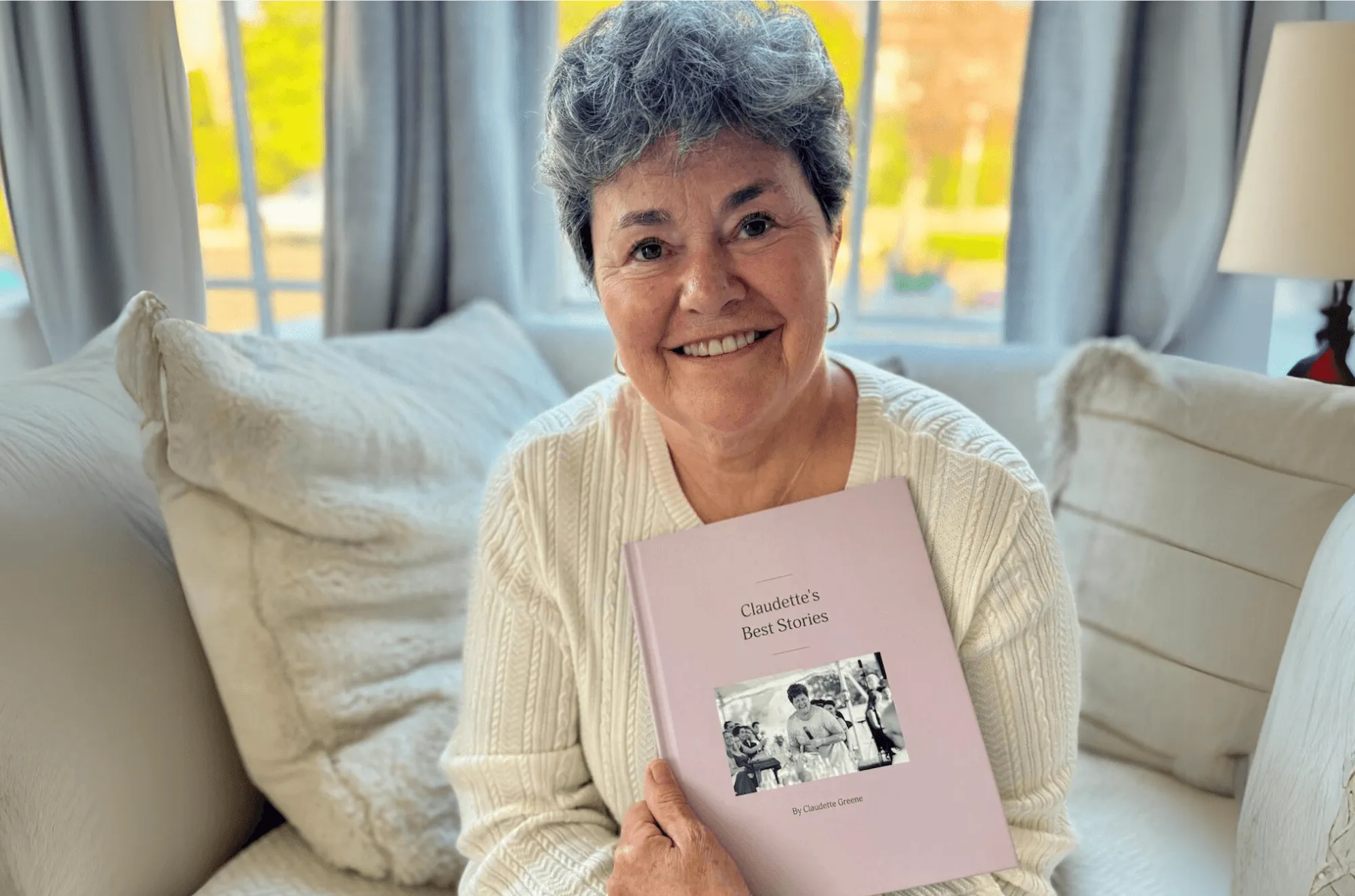
Their stories, forever at your fingertips
Remento’s life story books turn a parent or grandparent’s memories of the past into a keepsake book for the future - no writing required.
Capture priceless family memories today
Join the thousands of families using Remento to preserve family history, all without writing a word.
.avif)
